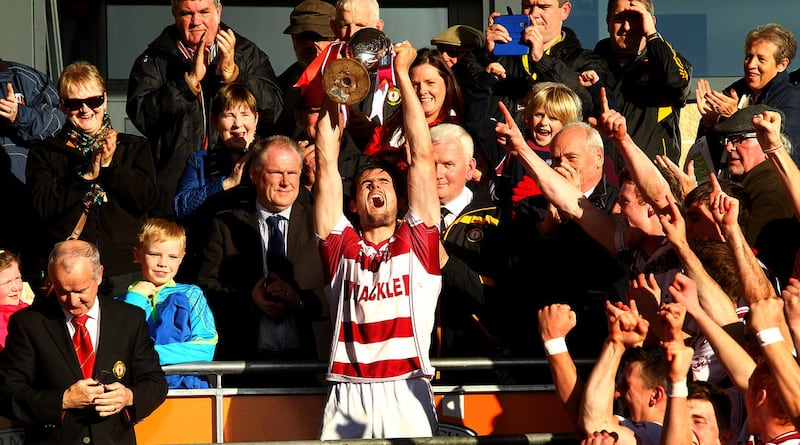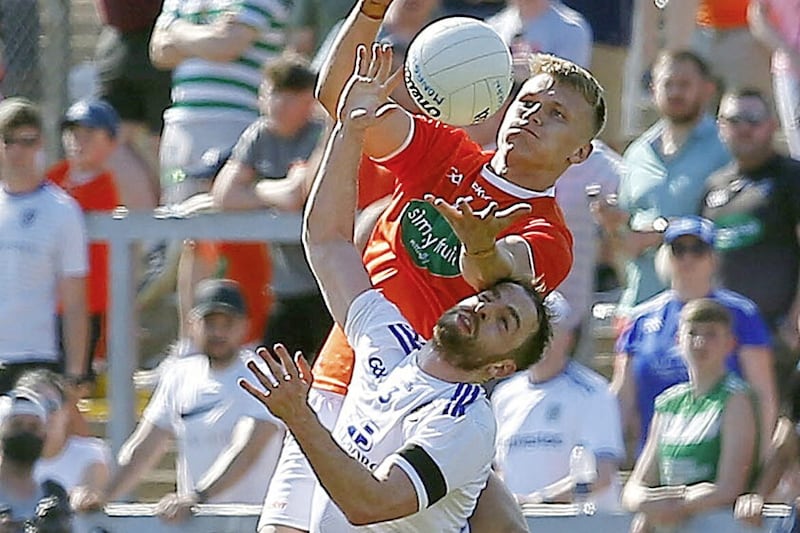THE Gaelic Athletic Association was founded on November 1, 1884. It oversees the most popular sport in Ireland in terms of participation and attendance and boasts an estimated 500,000 members worldwide.
Anyone expecting Monday’s Club Players Association launch at the St Enda’s GAA club in Ballyboden to provide all the answers to 133 years of fixture congestion would have been sadly mistaken.
I have no doubt some people may have expected the CPA to roll out a list of concrete proposals on how they would change the landscape of the GAA as we know it. But that is not what yesterday was about.
The CPA do not have all the answers and never claimed they did. Monday’s launch was merely the first step towards official recognition from the GAA. Their formation is an attempt to have the voice of the club player heard among decision makers.
Even though the general perception out there is that the club player is being hard done by, I knew that getting involved in the CPA would bring me criticism from some quarters.
That doesn’t bother me for one simple reason: my motives. As I have stated before, I am very happy with the fixture list and timing of games within Armagh.
The club season runs from April to October, we have a two-week break for holidays in July, and our leagues are always finished before championship commences. We did not have one game re-fixed or called off all year. As a club player, it’s hard to complain.
Because everything is running smoothly in Armagh at present I could have easily turned down the invitation to help with the initial organisation of the CPA, but I chose not to because the long-term future of the GAA nationwide is important to me.
The coming together of club players to improve the GAA is a positive step. If club players want change, now is their time to act. They now have a vehicle for action.
Players shouldn’t have to ask for recognition because they are the beating heart of the games we play. But it shows you something isn’t working properly when people from so many rival GAA clubs all across the country can agree on this common cause.
With TV rights deals in place it will be difficult to get serious movement on fixtures immediately, but if the CPA can ensure that fixtures decisions are in line with basic principles of rest - no matches on consecutive days like we have seen in the provincial club championships in both Connacht and Ulster this year - it would be a step forward.
Sometimes you wonder who the fixtures are being made for. If a county team has a successful run during the summer, it generally leads to club games being held up. Then it seems that counties just want to get competitions out of the way when it is the club players who have prepared long and hard for their day in the sun.
Fixtures should be subjected to a form of due diligence, where the competitions control committees ask: “How will this decision affect the players involved?”
If it has a direct or indirect negative impact the fixture makers should think again. County board officers and administrators are also club people so they should know what the issues are.
For example, the gap between provincial club success and the All-Ireland semi-final - usually November to February - is a huge bugbear of mine. I have always hated the break between these games because you lose all momentum built up from your provincial run. The semi-final seems like a lifetime away and it is very hard for management teams to strike the right balance between giving players space to switch off and not allowing fitness to slip too far.
In between times the entire McKenna Cup is done and dusted and the clubs will train on without a competitive game. Would a county manager tolerate a break of this length between their provincial final and an All-Ireland semi final? Not a chance.

Should Chrissy McKaigue or Diarmuid Connolly have to miss out on almost three months of their inter-county footballing season of 2017 in order to win an All Ireland club title while they only get to play two competitive games for their club during this time? Absolutely not.
I am very much a club-man, but it has always annoyed me that, during the 10 years I was fortunate enough to play county football for Armagh, I missed out on at least half of the National League calendar for seven seasons as a result of the success of our club.
Ideally, the GAA season would fall within a calendar year. Moving the All-Ireland club semi-finals and final and the Sigerson Cup weekend from their current dates in February and March, and agreeing to Páraic’s Duffy’s proposal to bring the inter-county All-Ireland finals forward a fortnight would free up four weekends for club championship games.
The provincial club finals could be brought forward with the All-Ireland finals taking place in November, allowing December as the off-season before doing it all over again.
It may be wishful thinking, but it is the best option for the long-term development of our games and our clubs in particular. Fixed dates for club championships will, through time, lead to greater exposure for club players throughout the country.
The CPA wish is to work collaboratively with the GAA on the behalf of club players to facilitate a mutually beneficial solution. If you are a club player at any grade, a parent, an administrator or supporter now is your time to register at www.gaaclubplayers.com and be part of something special.
Aaron Kernan is an executive member and grassroots coordinator of the Club Players’ Association









